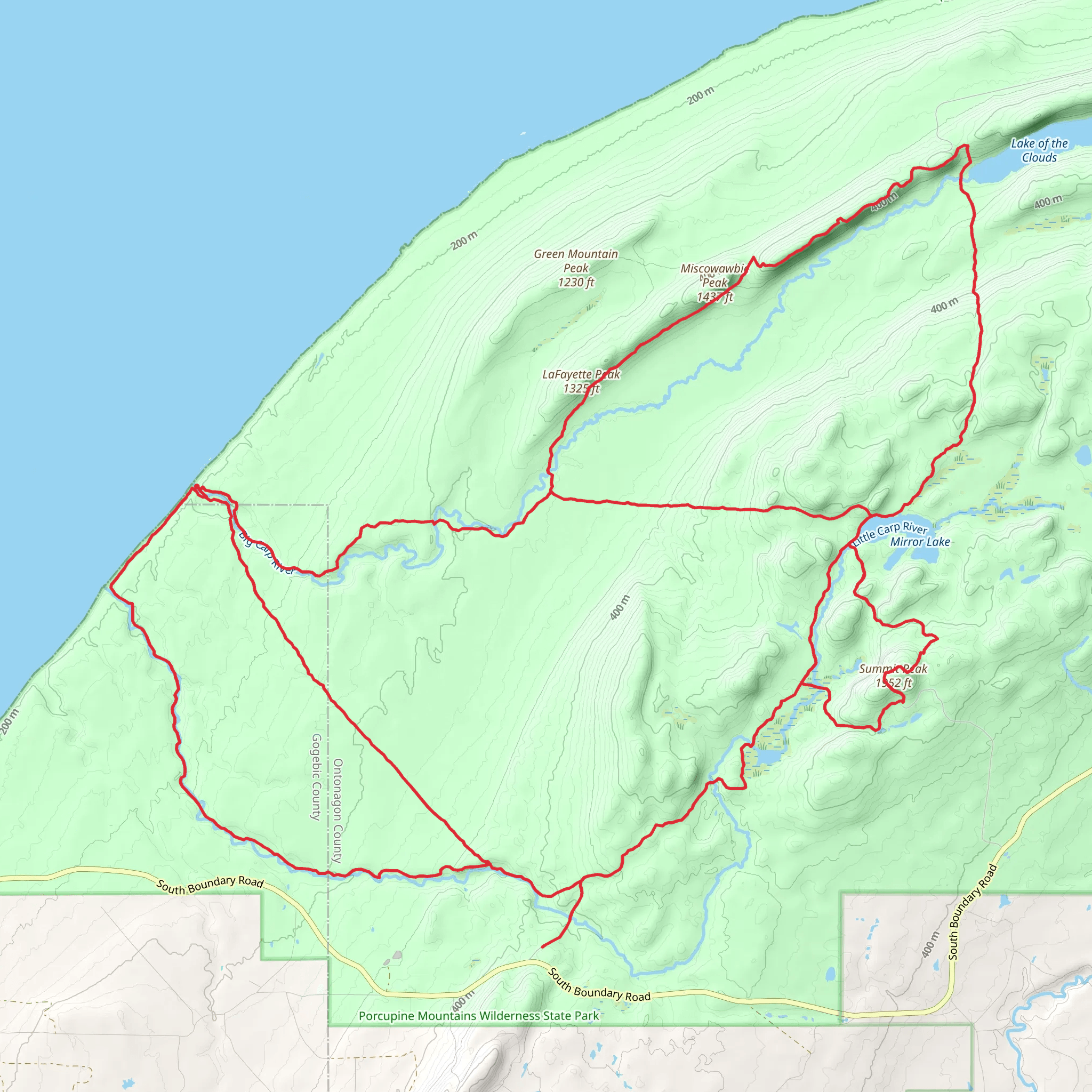Download
Preview
Add to list
More
37.3 km
~2 days
551 m
Multi-Day
“Embark on a scenic hike through Michigan's dense forests, encountering wildlife and historical remnants in the Porcupine Mountains.”
The Big and Little Carp Trails weave through the rugged and scenic backcountry of the Porcupine Mountains Wilderness State Park, offering hikers a chance to immerse themselves in the dense forests of Michigan's Upper Peninsula. Spanning approximately 37 kilometers (about 23 miles) with an elevation gain of around 500 meters (roughly 1640 feet), this loop trail is a medium-difficulty hike that promises a rewarding experience for those with some hiking experience.
Getting to the Trailhead To reach the trailhead, which is situated near Ontonagon County, hikers can drive to the Porcupine Mountains Wilderness State Park. The closest significant landmark is the park's visitor center, where you can find maps and additional information before setting out. For those relying on public transport, options are limited, and it's advisable to rent a car from nearby towns such as Ontonagon or Ironwood.
Navigating the Trail Once on the trail, hikers can utilize the HiiKER app for detailed navigation and to keep track of their progress. The trail is well-marked, but as with any backcountry hike, it's essential to stay aware of your surroundings and follow the trail markers to avoid getting lost.
Landmarks and Scenery The Big and Little Carp Trails offer a diverse array of landscapes, from towering old-growth forests to serene river valleys. Hikers will encounter the picturesque Big Carp River, which the trail follows for a portion of the hike. The river's banks are perfect spots for a rest or a picnic. As you ascend, you'll be treated to stunning vistas of the Carp River Valley and the Lake of the Clouds, one of the park's most iconic views.
Wildlife and Nature The area is rich in wildlife, and it's not uncommon to spot white-tailed deer, black bears, and a variety of bird species. The dense forest canopy is home to a symphony of bird calls, especially in the early morning. Hikers should be bear-aware, keeping a safe distance from wildlife and properly storing food.
Historical Significance The Porcupine Mountains were named by the native Ojibwa people, supposedly because the silhouette of the rolling hills resembled a crouching porcupine. The region has a rich history, including past mining operations. Along the trail, hikers may come across remnants of these bygone days, adding a touch of historical intrigue to the journey.
Preparation and Planning Before embarking on the Big and Little Carp Trails, hikers should ensure they are well-prepared with adequate supplies, including water, food, and layers for changing weather conditions. The trail can be completed in a long day hike for the ambitious, but many choose to camp along the way, taking advantage of the backcountry campsites to fully enjoy the wilderness experience.
Remember, the weather in the Upper Peninsula can be unpredictable, so it's crucial to check the forecast and prepare for a range of conditions. Lastly, always leave no trace of your visit to help preserve the natural beauty of the Porcupine Mountains for future generations.
What to expect?
Activity types
Comments and Reviews
User comments, reviews and discussions about the Big and Little Carp Trails, Michigan.
4.67
average rating out of 5
6 rating(s)

